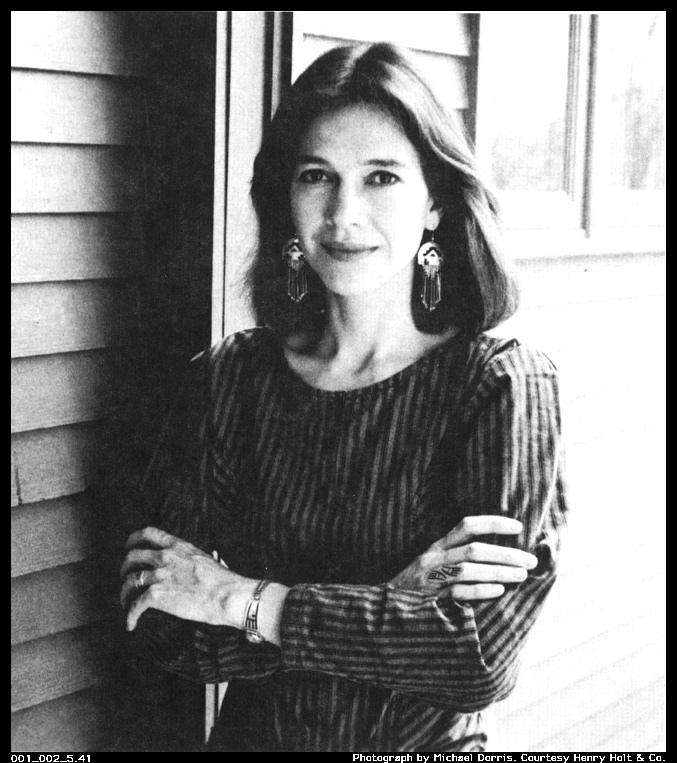LITR 5731 Seminar in American
Multicultural Literature
Minority Literature

Lecture Notes
begin Love Medicine
|
Inn of the Mountain Gods Romanticism & other terms Instructor's questions discussion: Jennifer Reick Indians & Asians web highlight: Pat Dixon conference option: instructor |
|
Thursday, 11 October: Provisional Research proposal due. Love Medicine through “A Bridge” (ends on p. 180)
Discussion-starter: Jennifer Rieck
Web-highlight (research projects): Patricia (Pat) Dixon
Thursday, 18 October: Love Medicine (complete)
Discussion-starter: Kathleen Anderson
Web highlight (research projects): Jennifer Jones
Poetry: Louise Erdrich, “Indian Boarding School: The Runaways”
Poetry reader / discussion leader: Kathleen Anderson
Romanticism & other terms
What is Romanticism?
European concept, but inseparable from American Indian as "noble savage"
Leah last week: contrast with "reality"
Next time: prep word and application
Romanticism as simplification, de-contextualization, projection of unconscious needs on other
Romanticized Indian as everything we're not: self-sufficient, communal, close to nature, simple needs . . .
Or evil nemesis: Indian as avenging angel, weeping eco-warrior
But neither is really human . . . .
Neihardt represses complicated reality of Black Elk's Catholicism, his work in a general store--too much like our own daily reality
"Reality" slips through or is suggested by syncretism . . . Christian imagery plus Ghost Dance as Apocalyptic movement
Instructor's questions for Love Medicine
Black Elk Speaks 1932; Love Medicine 1984, 1993
Continuities with Black Elk? What has changed about American Indian literature?
If Black Elk and Love Medicine are both examples of Native American literature, how do you talk about them together?
3b. Native American Indian alternative narrative: "Loss and Survival"
(Whereas immigrants define themselves by leaving the past behind in order to become American, the Indians were once “the Americans” but lost most of their land along with many of their people. Yet Native Americans defy the myth of "the vanishing Indian," choosing to "survive," sometimes in faith that the dominant culture will eventually destroy itself, and the forests and buffalo will return.)
loss and survival, 124-125
Romanticization of Indian? or post-modern substitutes for Romanticism?
Evaluate description:
Erdrich as part of wave of recent ethnic women writers who balance wide popularity with critical respectability
How?
What resemblances to popular + critically praised African American and Mexican American women writers (e. g. Maya Angelou, Sandra Cisneros)
"friendlier" writer than Morrison, but less profound--but pleasantly profound--how?
In brief, evaluate Erdrich's style--positively and negatively
How much do these issues impact the "assimilation-resistance" conflict in minority literature? Does Native American literature / culture offer alternatives to these extremes of cross-cultural interaction?
"acculturation"
"syncretism" 146
American Indians offer yet another option--a variant on assimilation that's sometimes called "acculturation." This is a form of change that's peculiar to traditional societies like Native America.
Broad distinction:
Assimilation: person or group gives up old culture to adapt to new culture; compare "conversion," where you give up old ways for new ones
Acculturation: old culture absorbs new items or ideas, incorporates them to pre-existing culture.
Example of American Indian acculturation: horses
Assimilation is more radical, revolutionary, more rapid and unsettling change.
Acculturation is more gradual--something relatively new can look like it's been there forever.
Examples of acculturation in Black Elk?
98
Indians & Asians
Original confusion by Columbus: Native Americans > "Indios" b/c he thought he'd discovered India
Still confusion over "Indians"--someone from India? Indian Americans or American Indians? Indian Americans say "Red Indians"
Deep-origin stories of American Indians: Asia like Africa for African Americans
Research complicates any single theory about Native American origins, but prevailing unitary theory . . .
Indians cross Bering Straits b/w Russia and Alaska 10-12 thousand years ago
In 1970s, this background developed as a theme in modern American Indian literature
Background: 20th-century Native American presence in U. S. Armed Forces
World War 2 (1942-45) against Japanese Asians
Vietnam War against Vietnamese Asians
Two major books of "American Indian Renaissance" of 1960s-70s describe irony of American Indians serving White America by fighting Asian Americans
N. Scott Momaday, House Made of Dawn (1968; Pulitzer Prize 1969)
Leslie Marmon Silko, Ceremony (1977)
Love Medicine
116 Asian-looking eyes
176 Vietnam memory
